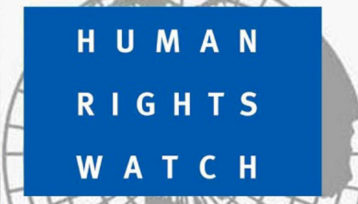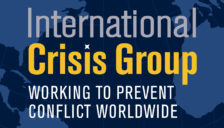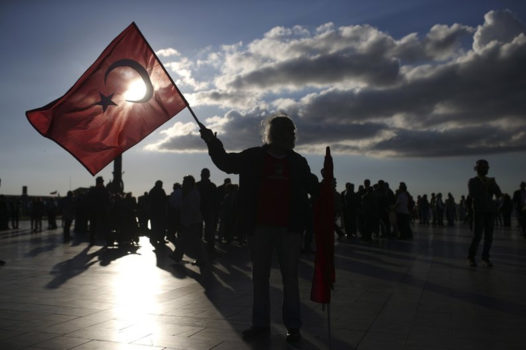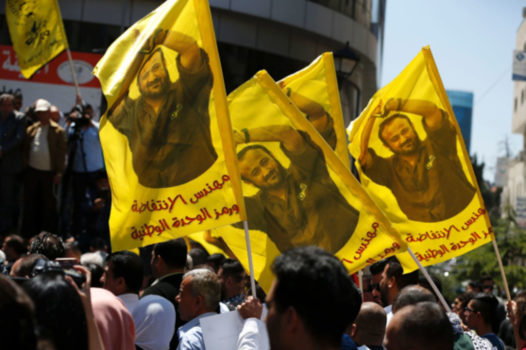|
|
This week in: Peace & Security Publications |
IPSI | Africa | Americas | East Asia | Middle East | South Asia
|
|
|
|
|
This week in Peace & Security Publications
|
|
|
|
|

Sanitation as a Global Right
Lack of sanitation significantly undermines other human rights, including health and gender equality.
|
|

Instruments of Pain: Conflict and Famine
For the first time in three decades, four countries, driven by war, verge on famine.
|

Best Practices for investigating crimes of electoral violence
Guidelines and best practices in the investigation of crimes of electoral violence.
|
|
|
|
|
|
|
IPSI Summer Symposiums in Bologna and Sarajevo. Spots filling quickly, apply online now.
|
|
|
|
|
This week in Sub-Saharan Africa
|
|
|
|
|
DEMOCRATIC REPUBLIC OF THE CONGO/SOUTH SUDAN: UN workers freed unharmed
On Tuesday, 16 MONUSCO staff members were released safely after being held hostage at a UN camp outside Goma, eastern DRC. The captors, a group of 100 unarmed South Sudanese refugees loyal to ex-Vice President Machar had seized the UN personnel in protest. They demanded to be granted asylum in a third country to avoid forced repatriation to South Sudan. Comment: The refugees were among a group of 530 who fled South Sudan last year after fighting erupted between forces loyal to President Kiir and those supporting opposition leader Machar. The hostage incident followed the repatriation of eight former fighters to South Sudan on Friday. Congolese civilians expressed concern over the presence of South Sudanese combatants in a country already plagued by decades of violence. (Al Jazeera 1, 2, AP, The Guardian)
|
|
|
|
|
ETHIOPIA: Prime Minister rejects UN and EU investigation into deadly protests
On Wednesday, Ethiopia’s Prime Minister Desalegn rejected requests by the UN and the EU for an independent investigation into the deaths of several hundred individuals during the anti-government protests that began in late 2015. He argued that the investigation infringed on the country’s right to sovereignty. His announcement came the day after Ethiopia’s state-affiliated Human Rights Commission presented findings of at least 699 deaths in the violent protests. Comment: Unrest throughout the country’s Oromia; Amhara; and Southern Nations, Nationalities, and Peoples regions erupted due to perceived ethnic marginalization and lasted over a year, until a state of emergency was declared last October and was extended this March amid continuing violence. (Al Jazeera, AP, BBC, Reuters)
|
|
|
|
|
|
SOMALIA: U.S. deploys troops to Somalia for first time in two decades
On Saturday, a spokeswoman for the U.S. Africa Command announced plans for “a few dozen” troops from the 101 Airborne Division to be deployed to Somalia. The light infantry unit specializing in air assaults is sent to train members of the Somali National Army fighting against the militant group al-Shabaab. Comment: This is the first time regular U.S. troops have been deployed to Somalia since the deaths of 18 special forces personnel in 1993. The deployment is part of U.S. President Trump’s recent call for an expanded U.S. military role in Somalia. (AfricaNews, AFRICOM, Al Jazeera, BBC)
Researched/Written by Jessica Himelfarb
|
|
|
|
|
This week in the Americas & Caribbean
|
|
|
|
|
MEXICO: Violence against journalists continues in Mexico
On Sunday, Mexican authorities found the remains of local journalist Juan José Roldan in the state of Tlaxcala, the second death of a journalist within 36 hours; Maximinio Rodriguez Palacios was shot dead in Baja California last Friday. Local and international media report that Roldan is the fifth journalist to be murdered since the beginning of the year. On Wednesday, the UN Human Rights representative, Jan Jarab, issued a statement condemning the murder of Rodriguez Palacios and insisting on the need to protect journalists in the country. Comment: Murders against journalists spiked in 2006 when a wave of violence tied to drug trafficking affected the country. According to the local organization Artículo19, a record number of 11 journalists were murdered and more than 400 injured in 2016. (La Prensa, Telesur, 1, 2, Univision, Al Jazeera)
|
|
|
|
|
|
PARAGUAY: Reelection amendment remains a possibility
On Wednesday, the Paraguayan House of Representatives, controlled by the Colorado Party, voted to consider the constitutional amendment approved by the Senate last week. The lower house representatives sent the proposed modification to the county’s electoral rules that currently limit the president to a single five-year term to the Constitutional and Legislative Commission for consideration. The Commission will have eight days to debate and revise the amendment before it’s discussed by the National Assembly next Wednesday. Comment: On Monday, President Horacio Cartes issued a statement announcing that he would “under no circumstance” pursue a presidential candidacy for the coming elections in 2018. Cartes’ decision came after demonstrations against the re-election amendment resulted in the death of one of the protesters. (ABC, Hoy, La Nación, Última Hora, Al Jazeera)
|
|
|
|
|
|
VENEZUELA: At least three dead after “Mother of all Marches”
On Wednesday, the 207th anniversary of Venezuelan independence, thousands of anti-government protesters took to the streets in what was called the “Mother of all Marches”. President Nicolas Maduro supporters also filled the streets of Caracas in the name of defending the country’s sovereignty, resulting in clashes between the two sides and the security forces. The Venezuelan National Guard deployed tear gas and other crowd control methods, resulting in the death of at least three people. Comment: The government reports that more than 521 people were arrested. The protests against the government began early this month after the Venezuelan Supreme Court dissolved the opposition-controlled congress. While President Maduro ordered the reversal of the ruling, the current administration barred the main opposition leader, Henrique Capriles, from holding office for 15 years. (El Comercio, El Nacional, Telesur, El Universal, Miami Herald, New York Times)
Researched/Written by Silvina Zbikoski
|
|
|
|
|
This week in East Asia & Pacific
|
|
|
|
|
INDONESIA: Christian governor concedes election
On Wednesday, Jakarta’s governor, Basuki Tjahaja Purnama, commonly known as Ahok, conceded defeat in a runoff election against Anies Baswedan in a campaign fraught with ethnic and religious tensions. Based on quick count results, Ahok, a Christian from the ethnic Chinese minority, lost to a Muslim politician Baswedan by 15 points. Despite having an early lead, Ahok lost popularity after he was accused of insulting Islam and was implicated in a blasphemy trial. A day after the election, prosecutors recommended probation and a one-year suspended sentence over the alleged blasphemy. Comment: As official results are not released until weeks after the election, Indonesia relies on quick counts which are based on samples of votes from polling stations. During the campaign, mass protests led by conservative religious leaders objected to Ahok running, called for his arrest, and campaigned on the idea that Muslims should reject non-Muslim rulers. (Channel News Asia, Al Jazeera 1 2, BBC, The Guardian)
|
|
|
|
|
SOUTH KOREA: Former president indicted on corruption charges
On Monday, prosecutors indicted ex-President Park Geun-hye on corruption charges. Park has been charged with bribery, coercion, abuse of power, and leaking state secrets. If convicted, Park’s maximum legal punishment would be for bribery charges, which ranges from 10 years to life in prison. The trial will start in the coming weeks and could take as long as a half-year. It is unclear whether the trial will take place before special elections are held in South Korea to replace her. Comment: Park was driven out of office by nonviolent mass protests and impeachment last year. She was officially removed from office and arrested in March. (The Japan Times, Al Jazeera, BBC, The Guardian)
|
|
|
|
|
|
REGIONAL: Region reacts to North Korean threat
Despite last week’s statements by the White House, a U.S. aircraft carrier and three other ships are not sailing towards North Korea, but instead are 3,500 miles away and heading south. On Monday during his visit to Asia, U.S. Vice President Mike Pence said that Pyeongyang would do well not to test the resolve of the U.S. president. South Korea and the U.S. agreed on early deployment of a missile defense system on the same day. In response, North Korea launched a failed missile test this past the weekend. Following Pence’s comments, the Chinese foreign ministry said China should not be held accountable for resolving North Korean issues. Comment: In recent years, North Korea has accelerated their missile and nuclear programs despite UN sanctions conducting a number of ballistic missile and nuclear tests. (NHK World 1 2, Channel Asia News, BBC, The Guardian)
Researched/Written by Kanstantsin Ivanou
|
|
|
|
|
|
This week in Europe & Central Asia
|
|
|
|
|
TURKEY: Protests ensue after referendum installs executive presidency
 |
|
On Sunday, the national referendum to abolish the parliamentary system and install an executive presidency passed with 51.4 percent of the vote. In response, thousands of protesters took to the streets, with opposition parties calling for the electoral board to annul the referendum. Their proposal was rejected on Wednesday. International election monitors, including the Organization for Security and Cooperation in Europe (OSCE), and the German government, raised questions over the legitimacy of the vote tallying. Comment: The referendum dramatically expands the powers of the president, including his ability to issue decrees under a state of emergency, which has been imposed on the country since the failed coup attempt in July 2016. Additionally, it abolishes the position of prime minister, the power of military courts, and the impartiality clause preventing the president of being a member of a political party. (Anadolu Agency, DW 1, 2, AP)
|
|
|
|
|
|
UK: Lawmakers support June 8 early election
On Wednesday, the House of Commons voted 522 to 13 to hold Prime Minster Theresa May’s call for a snap election. The election was scheduled to occur in 2020, but Prime Minister May demanded a sooner vote to avoid a potential transition period towards the end of the EU exit negotiations. Parliament will be dissolved at midnight on May 2, exactly 25 working days before the election. Comment: This will be the third time UK elections will be held since 2015. Polls currently show a double-digit lead for Prime Minster May’s conservative party, increasing their majority. According to some analysts including fivethirtyeight, a U.S. based non-partisan polling aggregator, UK polls have been historically inaccurate. (BBC, DW, AP, fivethirtyeight)
|
|
|
|
|
UKRAINE: UN court denies request to block Russian support for rebels
On Wednesday, the International Court of Justice (ICJ) rejected Ukraine’s request to block Russian support for rebels, arguing that Ukraine did not provide adequate evidence to prove Moscow was sponsoring terrorism by arming rebels. The court also ordered Russia to end any discrimination against minorities in Crimea, particularly ethnic Tartars, and to ensure the availability of education opportunities in the Ukrainian language. The case will continue to be analyzed by the court, likely for years to come. Comment: Russia annexed Crimea from Ukraine in March of 2014. Ukraine has accused Russia of arming rebels within its borders following the fall of the formerly pro-Russian government. Moscow has denied all allegations. (RFE/RL, DW, AP)
Researched/Written by Kenneth Davis
|
|
|
|
|
|
This week in the Middle East & North Africa
|
|
|
|
|
ISRAEL/PALESTINE: Palestinian prisoners begin mass hunger strike
 |
|
On Monday, 1,500 Palestinian prisoners currently held in Israel began a mass hunger strike to pressure Israel for basic rights and to shed light on the humanitarian concerns inside Israeli prisons. Prisoners face torture, inhumane treatment, medical neglect, and on occasion, death. Imprisoned Fatah leader Marwan Barghouti is leading the strike, and prisoners from all political parties within six Israeli prisons are participating. Israeli security forces sent Barghouti to solitary confinement after the New York Times published an opinion piece where he stated the reasons for the strike and self-identified as the leader of the movement. Rallies have been planned across all major Palestinian cities in solidarity with the prisoners, including Ramallah, Hebron, and Nablus. The Palestinian Authority has officially expressed its support of the strike. Comment: The open-ended hunger strike is one of the largest in recent years and coincides with Palestinian Prisoners Day, commemorated on April 17. There are currently 6,500 Palestinian prisoners held in Israeli prisons. (Al Jazeera, Haaretz, Jerusalem Online, The New York Times)
|
|
|
|
|
|
LEBANON: Syrians face eviction from refugee camp
On Saturday, local NGOs and aid agencies warned that thousands of Syrian refugees face eviction from the Bekaa Valley camps due to planned Lebanese army demolitions. On Saturday, the five-day deadline to evacuate the camps expired. The army considers the camps a security risk, as they are located within seven kilometers of the Rayak airbase. NGOs and aid agencies are scrambling to find resources and accommodations to relocate the over 11,000 refugees living in these camps. Comment: Lebanon has no formal refugee camps due to a policy stemming from a complex history with Palestinian refugees and concerns that a long-term Syrian presence will disrupt the country’s sensitive sectarian balance. According to Human Rights Watch, the residency requirements for Syrians in Lebanon, ratified in January 2015, have resulted in most refugees in Lebanon losing their legal status. (Al Jazeera, The New Arab, Middle East Eye)
|
|
|
|
|
YEMEN: U.S. drone strikes kill five al-Qaeda members
On Wednesday, two United States drone strikes killed five suspected -l Qaeda operatives. One strike hit a vehicle, killing two, in the southern province of Shabwa, while the second hit a car in the Marib province, east of the rebel-held capital Sanaa, killing three. Comment: Saudi-backed government forces mostly control Shabwa and Marib, but al-Qaeda has reemerged, taking advantage of the ongoing civil war. The U.S. has intensified its campaign against terrorism in Yemen since Donald Trump took office in January. According to the Pentagon, the U.S. has carried out over 70 airstrikes in Yemen since February. (
Middle East Eye
, Asharq Al Awsat, Khaleej Times)
Researched/Written by Raghda Karajah
|
|
|
|
|
|
INDIA: Internet shut down in Kashmir after videos of abuse go viral
On Monday, the government stopped 3G and 4G Internet services in the Kashmir Valley in response to the proliferation of videos of human rights abuses and protest violence released online over the previous week. Police forces in Kashmir claim that Internet restrictions in turn restrict the mobilization of protestors and are necessary to the valley’s security. Local and international journalists call the restrictions state censorship. Comment: One of the released videos depicts a young Kashmiri man tied to the front of a security force jeep. Army spokesperson, Colonel Rajesh Kalia, said the video’s veracity is being investigated. Internet services were also suspended for two days after election violence broke out in Srinigar on April 9. (The Express Tribune 1, 2, Hindustan Times 1, 2, Al Jazeera 1, 2)
|
|
|
|
|
NEPAL: Three soldiers convicted for torture and murder of 15-year-old girl during civil war
On Monday, a Nepal court sentenced three soldiers to 20 years in prison for the torture and murder of Maina Sunuwar. This is only the second conviction and sentencing of crimes committed during the war and the first in which army personnel have been convicted. Human rights groups fear the soldiers may not serve their sentences. Comment: Nepal’s government has faced criticism for its reluctance to address war crimes. An NGO, the Advocacy Forum, brought this specific case to the court. (The Himalayan Times, Kathmandu Post, BBC, UN News)
|
|
|
|
|
|
PAKISTAN: Pakistani Taliban leader surrenders to Pakistan army
On Monday, the Pakistani military announced the surrender of Ehsanullah Ehsan, a leader of the Jamaat-ur-Ahrar (JuA) faction of the Pakistani Taliban, Tehreek-e-Taliban (TTP). The military did not release details of the surrender, but Ehsan stopped communicating with journalists in late 2016. JuA has not released a statement in response to the military’s claim. If true, Ehsan’s surrender would be the highest-profile surrender by a Pakistani Taliban leader in recent years. Comment: Ehsan joined JuA when it formed as a faction of the TTP in August 2014, leaving his post as a prominent spokesperson of the central TTP. The JuA claimed responsibility for several of the attacks executed this past February, leaving more than 130 killed across the country. (Daily Times, The Nation, Al Jazeera)
Researched/Written by Kaleigh Thomas
|
|
|
|
|